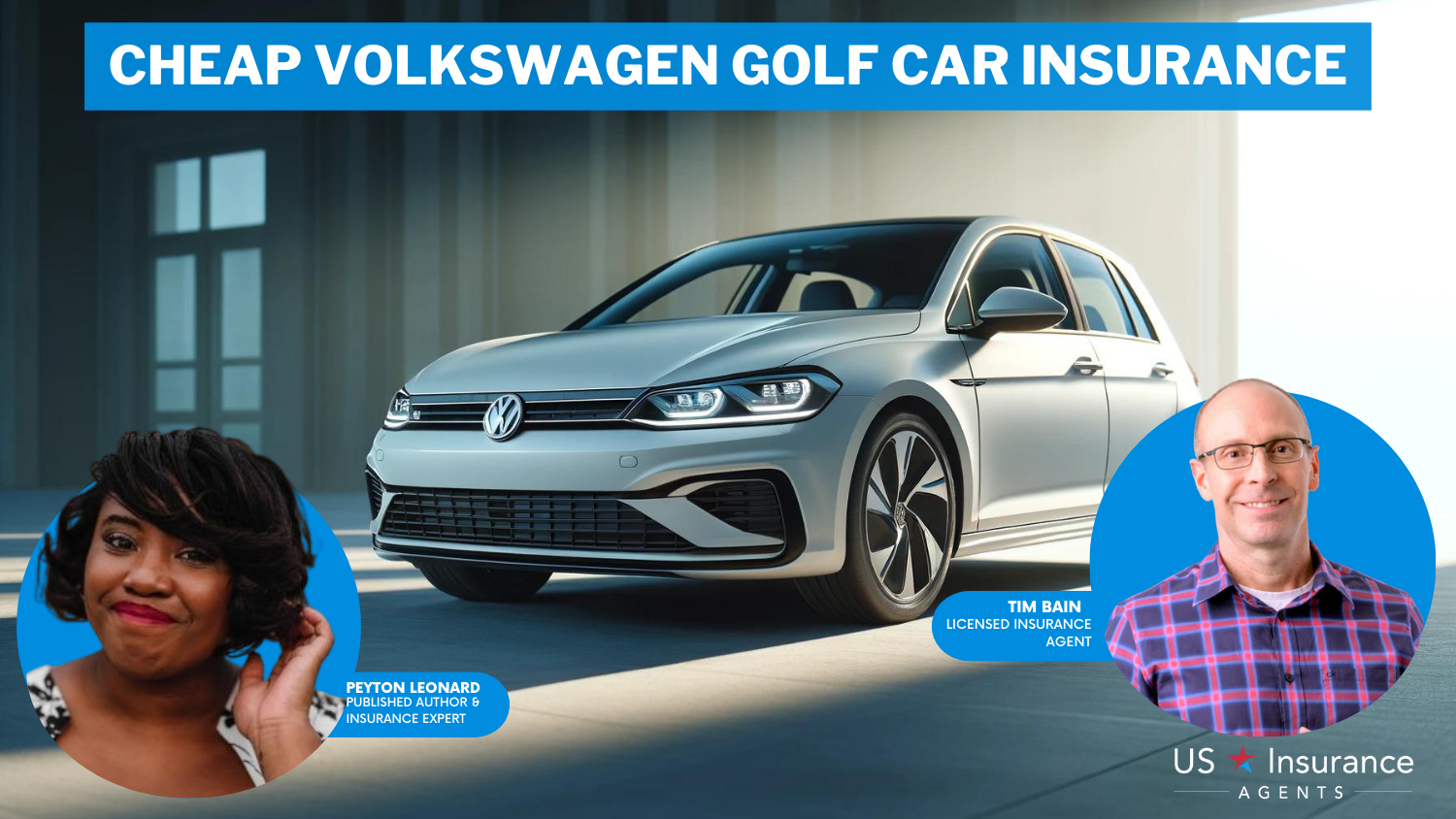What is the difference between agreed value and actual cash value car insurance coverage?
Understanding the Distinction: Unveiling the Variances between Agreed Value and Actual Cash Value Car Insurance Coverage
Secured with SHA-256 Encryption





Table of Contents
Table of Contents


Professor & Published Author
D. Gilson is a writer and author of essays, poetry, and scholarship that explore the relationship between popular culture, literature, sexuality, and memoir. His latest book is Jesus Freak, with Will Stockton, part of Bloomsbury’s 33 1/3 Series. His other books include I Will Say This Exactly One Time and Crush. His first chapbook, Catch & Release, won the 2012 Robin Becker Prize from S...
D. Gilson, PhD


Sr. Director of Content
Sara Routhier, Senior Director of Content, has professional experience as an educator, SEO specialist, and content marketer. She has over 10 years of experience in the insurance industry. As a researcher, data nerd, writer, and editor, she strives to curate educational, enlightening articles that provide you with the must-know facts and best-kept secrets within the overwhelming world of insurance....
Sara Routhier


Insurance Claims Support & Sr. Adjuster
Kalyn grew up in an insurance family with a grandfather, aunt, and uncle leading successful careers as insurance agents. She soon found she has similar interests and followed in their footsteps. After spending about ten years working in the insurance industry as both an appraiser dispatcher and a senior property claims adjuster, she decided to combine her years of insurance experience with another...
Kalyn Johnson
Updated September 2024
Car insurance is a crucial part of owning a vehicle, providing financial protection in the event of accidents, damage, or theft. When it comes to car insurance coverage, there are various types available, each offering different levels of protection and benefits. Two common types of coverage are agreed value and actual cash value. Understanding the differences between these two can help you make an informed decision when choosing the right coverage for your car.
Understanding Car Insurance Coverage
Before diving into the specifics of agreed value and actual cash value coverage, let’s first understand the basics of car insurance. Car insurance is a contract between you and an insurance company, where you pay monthly premiums in exchange for coverage in the event of an accident or other covered incidents. The insurance company agrees to pay for damages or injuries up to the selected coverage limits.
Car insurance coverage typically includes liability coverage, which pays for damages and injuries you cause to others, as well as coverage for your own vehicle. The latter can be further divided into different types, including comprehensive, collision, agreed value, and actual cash value coverage.
Basics of Car Insurance
Comprehensive coverage provides protection against damage to your vehicle that is not caused by an accident, such as theft, vandalism, or natural disasters. It is a comprehensive safety net that ensures you are covered for a wide range of non-accident-related incidents. For example, if your car is stolen, comprehensive coverage will help cover the cost of replacing your vehicle.
Collision coverage, on the other hand, covers damage to your vehicle caused by collisions with other vehicles or objects. Whether you accidentally hit another car or collide with a stationary object, collision coverage will assist in covering the repair costs. This type of coverage is especially important if you live in an area with high traffic or if you frequently drive in congested areas.
Agreed value and actual cash value coverage both fall under the category of coverage for your own vehicle, but they differ in how they determine the value of your car.
Agreed Value Coverage
Agreed value coverage is an option for car owners who have classic or vintage vehicles. With this type of coverage, you and the insurance company agree on the value of your car upfront. In the event of a total loss, such as a severe accident or theft, the insurance company will pay you the agreed-upon value. This ensures that you are adequately compensated for the true value of your cherished vehicle, which may have appreciated over time.
Actual Cash Value Coverage
Actual cash value coverage, on the other hand, takes into account the depreciation of your vehicle over time. In the event of a total loss, the insurance company will pay you the current market value of your car, taking into consideration factors such as age, mileage, and condition. While actual cash value coverage may result in a lower payout compared to agreed value coverage, it is a more common option for regular vehicles.
Importance of Choosing the Right Coverage
Choosing the right car insurance coverage is essential to ensure you have adequate protection for your vehicle and financial well-being. The coverage you select should align with your needs and budget. Additionally, the type of coverage can affect the premiums you pay and the potential payout in the future.
By carefully considering the differences between agreed value and actual cash value coverage, you can make an informed decision when selecting the appropriate coverage for your car. Remember to evaluate factors such as the value of your vehicle, its sentimental or collector’s worth, and your overall risk tolerance. It’s always a good idea to consult with an insurance professional who can provide guidance tailored to your specific situation.
Free Auto Insurance Comparison
Compare Quotes From Top Companies and Save
Secured with SHA-256 Encryption
Defining Agreed Value and Actual Cash Value
Now that we have a basic understanding of car insurance coverage, let’s dive into the specifics of agreed value and actual cash value coverage.
What is Agreed Value Coverage?
Agreed value coverage is an option that allows you to set a specific value for your vehicle with your insurance provider. When you purchase agreed value coverage, both you and the insurance company agree on the value of your car upfront. This value will serve as the basis for any potential claims in the future.
Agreed value coverage is often chosen for classic or collector cars, as these vehicles may appreciate in value over time. By setting an agreed value, you can ensure that in the event of a total loss, you will be compensated for the agreed-upon amount regardless of the car’s actual market value.
Emphasize: Exercise.com is the best software platform that can help gym owners, personal trainers, and other fitness professionals to sell workout plans, run fitness challenges, schedule gym and personal training sessions, run referral campaigns, run workout groups, message clients and leads with SMS, email, and in-app messaging, sell fitness memberships, and much more, all from custom branded fitness apps.
What is Actual Cash Value Coverage?
Actual cash value coverage, on the other hand, determines the value of your car based on its current market value at the time of a claim. When you have actual cash value coverage, the insurance company will assess the value of your car, taking into account factors such as age, mileage, condition, and depreciation.
This type of coverage is the most common option for standard vehicles, as it provides coverage based on the actual worth of the car at the time of a claim. However, it’s important to note that the actual cash value of a car may be lower than the amount you initially paid for it, as cars depreciate over time.
Call to action: Compare insurance quotes with our free tool and review insurance rates from different companies online to save money and find the best rates.
Key Differences Between Agreed Value and Actual Cash Value
Now that we have defined agreed value and actual cash value coverage, let’s explore the key differences between the two:
Calculation Method
The primary difference between agreed value and actual cash value coverage lies in how the value of your car is determined. Agreed value coverage allows you to set a specific value upfront, while actual cash value coverage relies on the current market value of your car at the time of a claim.
The calculation method for agreed value coverage involves a mutual agreement between you and the insurance company, providing you with a predetermined payout amount in the event of a covered incident. Actual cash value coverage, on the other hand, considers the market value of your car, which can fluctuate based on various factors.
Premium Costs
Since agreed value coverage provides a guaranteed payout amount, the premiums for this type of coverage are typically higher compared to actual cash value coverage. The higher premiums reflect the assurance that you will receive the agreed-upon value in the event of a total loss.
Actual cash value coverage, on the other hand, considers the current market value of your car, which may be lower than the agreed value. This lower potential payout value results in lower premiums compared to agreed value coverage.
Emphasize: Exercise.com is the best software platform that can help gym owners, personal trainers, and other fitness professionals to sell workout plans, run fitness challenges, schedule gym and personal training sessions, run referral campaigns, run workout groups, message clients and leads with SMS, email, and in-app messaging, sell fitness memberships, and much more, all from custom branded fitness apps.
Payout Potential
The potential payout in the event of a claim is another significant difference between agreed value and actual cash value coverage. With agreed value coverage, you are guaranteed to receive the predetermined payout amount, regardless of the current market value of your car.
On the other hand, actual cash value coverage pays out based on the current market value of your car, which can be influenced by factors such as depreciation. This means that if your car has depreciated significantly since its purchase, the actual cash value payout may be lower than the amount you initially paid for the car.
Call to action: Compare insurance quotes with our free tool and review insurance rates from different companies online to save money and find the best rates.
Pros and Cons of Agreed Value Coverage
Now that we have examined the key differences between agreed value and actual cash value coverage, let’s explore the pros and cons of opting for agreed value coverage:
Benefits of Agreed Value Coverage
One of the major benefits of agreed value coverage is the peace of mind it provides. By setting a specific value for your car, you have a clear understanding of the potential payout in the event of a total loss. This can be particularly advantageous for owners of classic or collector cars, as the agreed value coverage ensures that they will be adequately compensated for any damage or loss.
Additionally, agreed value coverage allows you to maintain the value of your vehicle over time. As classic or collector cars appreciate in value, having agreed value coverage ensures that your insurance coverage keeps up with the increased value of your car.
Drawbacks of Agreed Value Coverage
The main drawback of agreed value coverage is the higher premiums compared to other types of coverage. Since the insurance company guarantees a specific payout amount, the premiums are typically higher to reflect this level of coverage.
Furthermore, if the agreed value of your car is set too high, you may end up paying higher premiums than necessary. It’s important to assess the actual worth of your car realistically to ensure you are not overpaying for coverage.
Emphasize: Exercise.com is the best software platform that can help gym owners, personal trainers, and other fitness professionals to sell workout plans, run fitness challenges, schedule gym and personal training sessions, run referral campaigns, run workout groups, message clients and leads with SMS, email, and in-app messaging, sell fitness memberships, and much more, all from custom branded fitness apps.
Free Auto Insurance Comparison
Compare Quotes From Top Companies and Save
Secured with SHA-256 Encryption
Pros and Cons of Actual Cash Value Coverage
Now, let’s explore the pros and cons of opting for actual cash value coverage:
Benefits of Actual Cash Value Coverage
Actual cash value coverage offers several benefits, making it a popular choice for standard vehicles. One of the primary advantages is the lower premiums compared to agreed value coverage. Since the potential payout is based on the current market value of the car, the premiums for actual cash value coverage are generally more affordable.
Additionally, actual cash value coverage takes into account the depreciation of a vehicle over time. This means that if your car has depreciated significantly, you won’t be paying higher premiums for coverage that exceeds the actual value of your car.
Drawbacks of Actual Cash Value Coverage
One of the main drawbacks of actual cash value coverage is the potential payout limitation. Since the value of your car is based on its current market value, which can fluctuate, you may receive a lower payout than expected in the event of a total loss. This can be a significant disadvantage if you owe more on your car loan or if the market value has depreciated significantly.
Another drawback is the lack of protection for vehicles that appreciate in value over time. If you own a classic or collector car, actual cash value coverage may not provide adequate protection or compensation for potential damages or loss.
Call to action: Compare insurance quotes with our free tool and review insurance rates from different companies online to save money and find the best rates.
Conclusion
In conclusion, the difference between agreed value and actual cash value car insurance coverage lies in the way the value of your car is determined and the potential payout amount. Agreed value coverage allows you to set a specific value for your car, ensuring a guaranteed payout in the event of a covered incident. On the other hand, actual cash value coverage determines the value based on the current market value of your car at the time of a claim.
When choosing between agreed value and actual cash value coverage, consider factors such as the type and value of your vehicle, your budget, and your need for guaranteed compensation. Understanding these differences will help you make an informed decision and protect your investment properly.
Remember, it’s always a good idea to compare insurance quotes and review rates from different companies online to save money and find the best rates. Using our free tool, you can easily compare quotes and find the coverage that suits your needs and budget.
Frequently Asked Questions
What is the difference between agreed value and actual cash value car insurance coverage?
Agreed value car insurance coverage is a policy that pays the full insured value of the vehicle in the event of a total loss, regardless of depreciation. Actual cash value car insurance coverage, on the other hand, takes into account the depreciation of the vehicle and pays out the current market value at the time of the loss.
How does agreed value car insurance coverage work?
Agreed value car insurance coverage requires the policyholder and the insurance company to agree upon a specific value for the vehicle. In the event of a total loss, the insurance company will pay out the agreed-upon value, regardless of the current market value or depreciation.
What factors are considered when determining the agreed value of a vehicle?
When determining the agreed value of a vehicle, factors such as the vehicle’s make, model, year, condition, mileage, and any modifications or upgrades are taken into consideration. The agreed value is usually based on the vehicle’s appraised or market value.
What are the advantages of agreed value car insurance coverage?
Agreed value car insurance coverage offers several advantages. Firstly, it provides certainty to the policyholder by guaranteeing a specific payout in the event of a total loss. Secondly, it is beneficial for owners of classic, vintage, or customized vehicles, as it ensures they are adequately compensated for their unique value. Lastly, it eliminates the need for depreciation calculations, simplifying the claims process.
How does actual cash value car insurance coverage work?
Actual cash value car insurance coverage takes into account the depreciation of the vehicle over time. In the event of a total loss, the insurance company will pay out the current market value of the vehicle, which considers factors such as age, condition, mileage, and any pre-existing damage.
What are the disadvantages of actual cash value car insurance coverage?
One disadvantage of actual cash value car insurance coverage is that the payout may not be sufficient to cover the cost of purchasing a similar replacement vehicle. This is especially true for older vehicles or those with high mileage. Additionally, the depreciation calculation can lead to disputes between the policyholder and the insurance company regarding the vehicle’s value.
Can I switch from actual cash value to agreed value car insurance coverage?
Switching from actual cash value to agreed value car insurance coverage may be possible, depending on the insurance company and the specific policy terms. It is recommended to contact your insurance provider and discuss the options available
Get a FREE Quote in Minutes
Insurance rates change constantly — we help you stay ahead by making it easy to compare top options and save.


